‘I am 25 and still afraid of the dark’: Victims’ families wrestle with grief as they weigh the death penalty on the ballot

Proposition 66 would speed up the death penalty system. (Allen J. Schaben / Los Angeles Times)
- Share via
On a cool afternoon in October, Sandra Friend sits near a patch of green clover outside her small country home near Yuba City, thinking of her late son as the wind rustles through the trees. Friend, 43, says she wants “California voters to know what kind of offenders are on death row,” men like Robert Boyd Rhoades, who sodomized, tortured and killed 8-year-old Michael Lyons two decades ago.
She recalled that investigators said the wounds her son endured were deliberate: Rhoades stabbed the 63-pound boy 70 to 80 times with a fisherman’s knife and kept him alive for hours.
“From the very first inflicted wound to Michael, it was 10 hours to the last one,” Friend said. “For a grown man to inflict that kind of painful torture on a child — he got the right sentence. He got the only sentence that would bring any justice.”
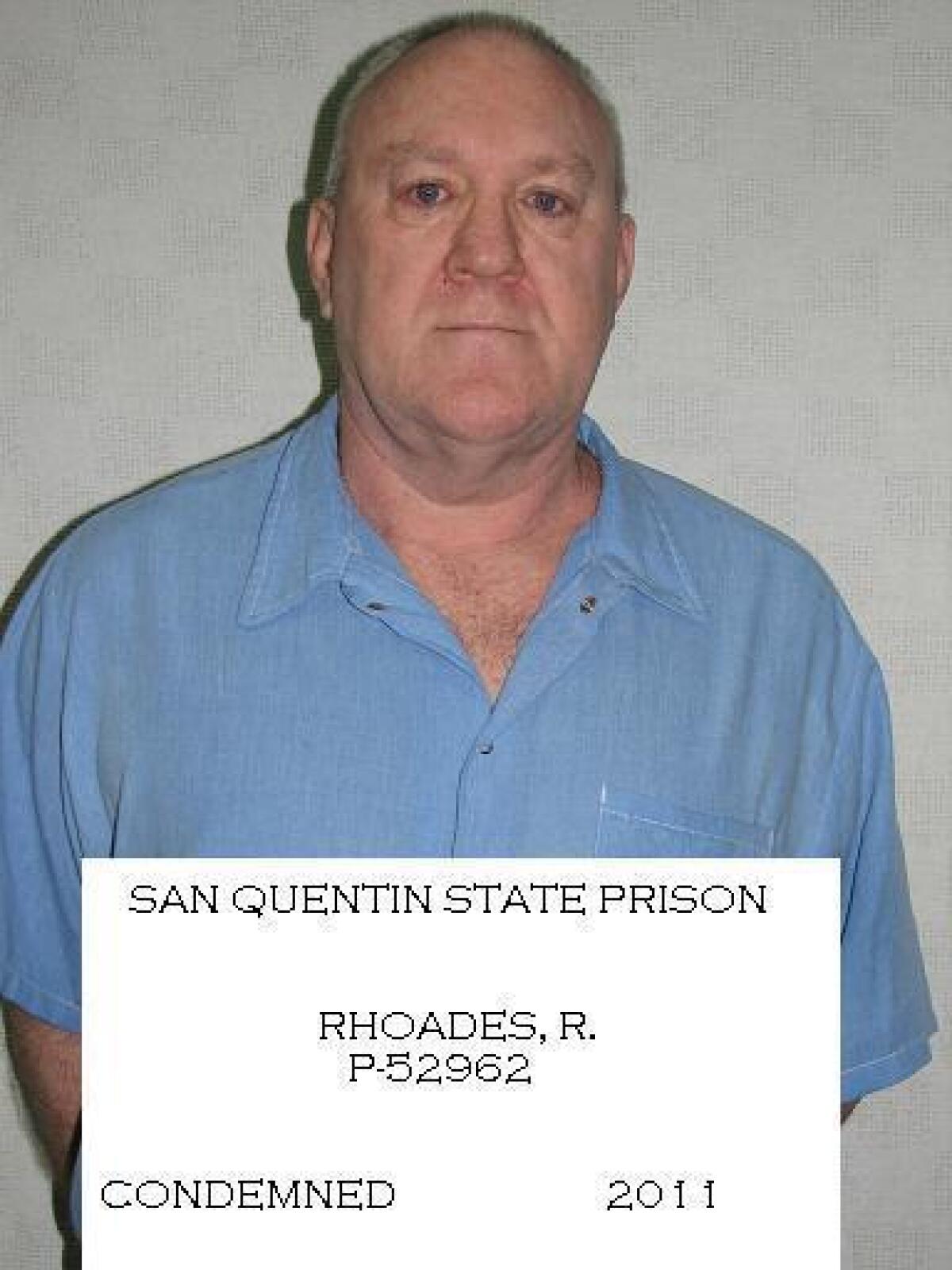
As voters consider doing away with the death penalty on Nov. 8, public opinion of capital punishment has hit a record low and debate has centered on the expensive costs of a broken system. But emotional appeals like Friend’s have become integral to a campaign that seeks to preserve the practice, their voices a reminder that justice, closure and vengeance are still a painful part of the discussion for hundreds of families.
California has the largest death row population in the country, with more than 740 inmates awaiting punishment after executions were suspended in 2006, when the state’s method for lethal injection was challenged in court. Their appeals go directly to the state Supreme Court and take an average of 25 years.
Friend is among the supporters of Proposition 66, which intends to speed up the system. If approved by voters, the proposal would designate trial courts to take on initial challenges to convictions and require appointed lawyers who don’t typically take capital appeals to represent death row inmates. It also would require that the entire appeals process be limited to within five years of a death sentence.

Opponents of Proposition 66 argue its provisions could increase the possibility of killing innocent people. They warn that inexperienced attorneys would have to handle complicated petitions, and they contend that more cases would fall to lower courts already struggling with clogged dockets, few lawyers and low funding for investigators and expert witnesses.
But crime victims, like Friend, frustrated with what they call an excruciatingly slow appeals process, say the ballot measure represents a unique opportunity to fix the system.
“I am not saying I want to execute someone who is innocent,” Friend said. “I would never want that, but if one of your loved ones came across Rhoades, it is about justice.”
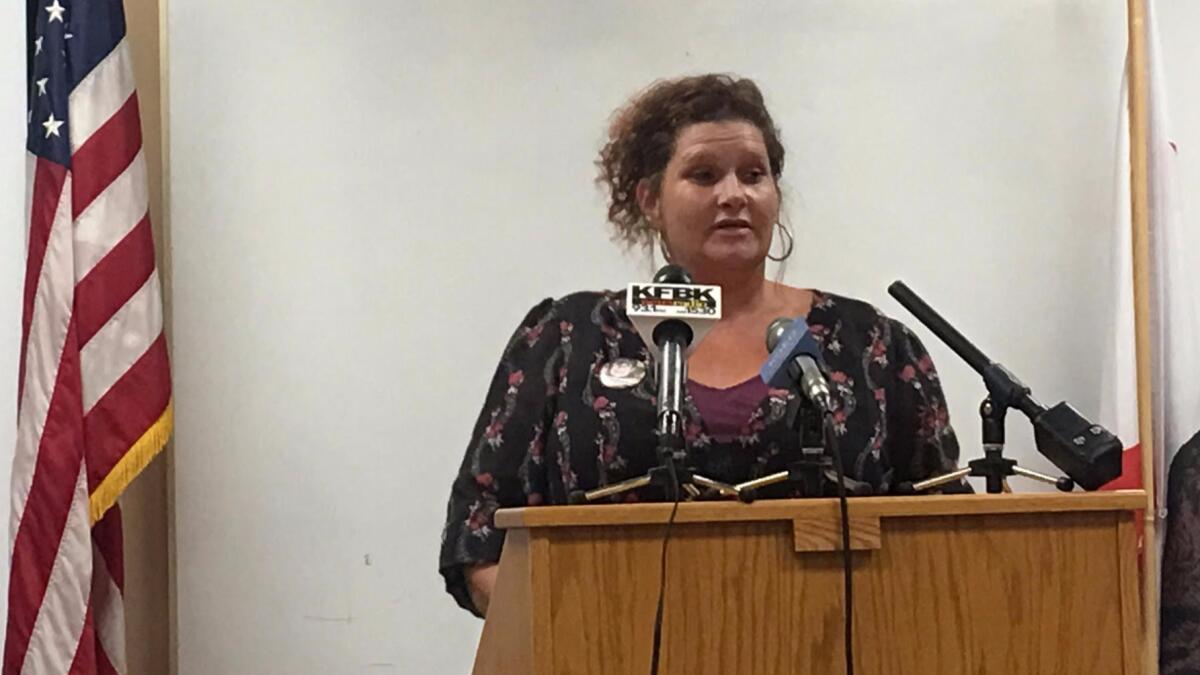
Michael Lyons was found near the edge of the Feather River in the Sacramento Valley, his black Batman shirt pulled over his head, a silver bracelet clutched in his hand.
He had always been trusting and eager to help, Friend recalls. He was the boy who would stay after class to help his teacher clean her classroom. He was the Casanova who wrote poems to his crushes and picked flowers for the girls at school.
Friend says she can’t fault her son for stopping when, on Michael’s way home from school, Rhoades pulled up next to him and, according to a neighbor, appeared to ask for directions. But over the past 20 years, she has committed herself to doing everything in her power to prevent another parent from going through what she did.

Friend, the mother of five daughters, has marched up the state Capitol steps to participate in rallies and testify before lawmakers in support of tougher laws against sex offenders. As a crime victim counselor and founder of the Michael Lyons Foundation, she has rushed to the side of other families and spoken at schools in hopes of giving children the tools to empower and protect themselves.
Advocating for the death penalty has become part of that battle.
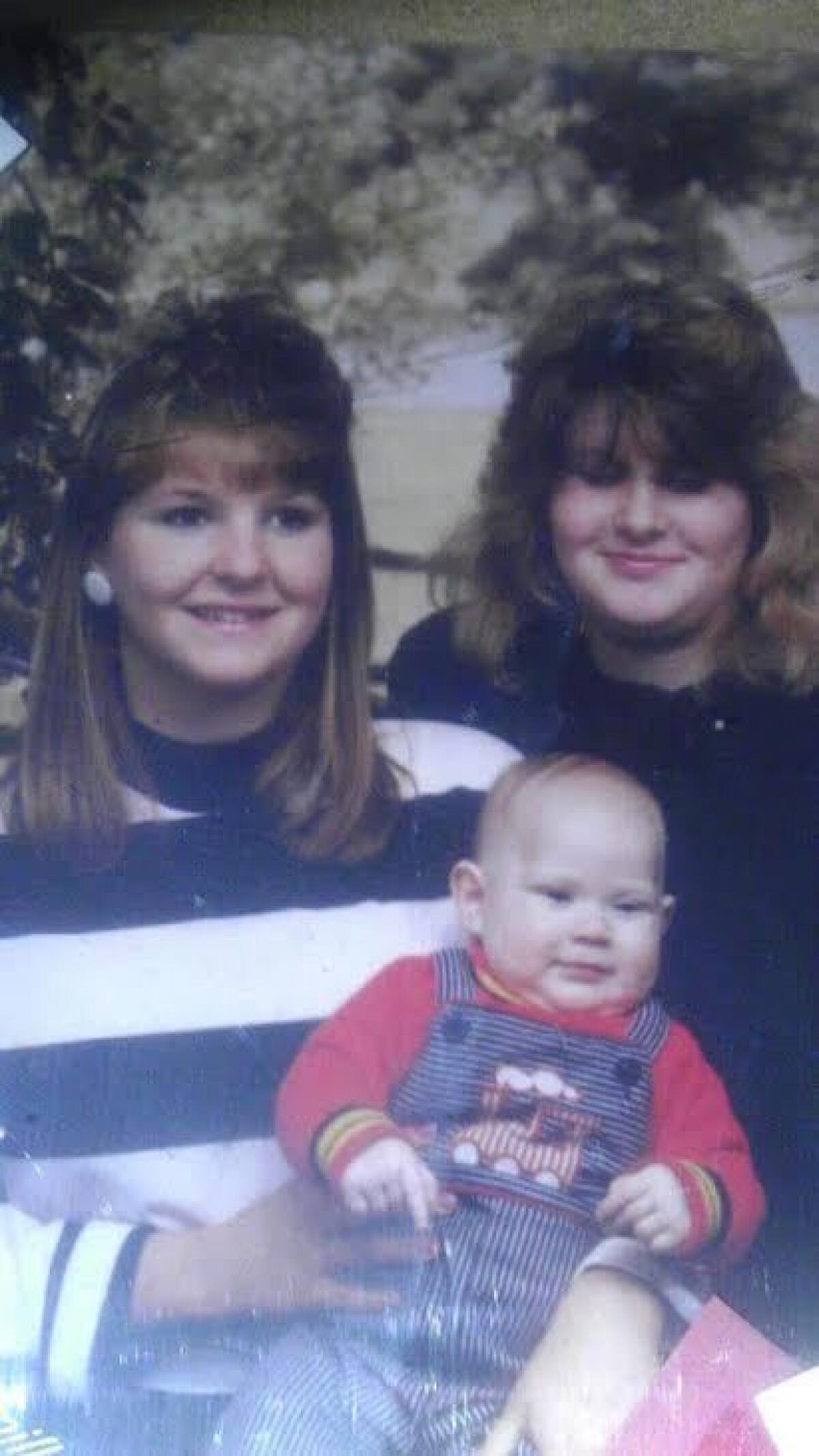
She campaigned hard against Proposition 34, an unsuccessful attempt to end capital punishment in California in November 2012. This year, she has spoken at media events and has appeared in videos in support of Proposition 66.
Friend said she had never met Rhoades before he took her son. She now calls him “a monster.” He had been twice convicted of child molestation and was on parole when he killed Michael. He was later convicted in the rape and killing of an 18-year-old woman in 1984. Around that time, another woman had alleged that he attacked her.
“But no one had believed her,” Friend said. “No one wanted to believe that this normal looking guy, who goes to work, who is well off, could turn on you and do horrendous things to you and have no sympathy for human life.”
The United States ended its four-year, de facto moratorium on the death penalty in 1976, when the U.S. Supreme Court reaffirmed its constitutionality. California reinstated the practice at the ballot box in 1978.
In the nearly four decades since, some researchers estimate the state has spent $5 billion on a system that has housed hundreds of death row inmates and executed only 13, the latest in 2006.
Now victims’ family members have become prominent speakers in campaigns for both death penalty measures. In news conferences held and ads released for Proposition 66 this week, the promise of closure for loved ones has been among the dominant themes.
The emotional appeal, researchers and legal experts said, has become common in recent decades, as studies have shown that capital punishment is expensive and fails to deter crime. But neither side of the debate, they argue, has invested enough time or resources to study the real effect of executions on victims’ families.
Of the limited research that does exist, studies show a slow death penalty system can harm families attempting to heal. One of the most recent analyses, a 2012 report in the Marquette Law Review, found better levels of physical, psychological, and behavioral health among crime survivors of adjudicated cases in Minnesota, a life-without-parole state, versus those in Texas, a death penalty state where cases often became entangled in lengthy appeals.
Nancy Berns, a sociology professor at Drake University in Iowa who has written a book on what she calls the false promise of closure, contends it should be taken out of the discussion.
“It is not fair to the victims’ families who can get caught up in this rhetorical debate when we can’t promise them healing because of an execution,” she said.
For that reason, some crime victims are choosing instead to support Proposition 62, which would replace capital punishment with life in prison without parole.
Beth Webb, who lost her sister and several friends in a 2011 mass shooting at a Seal Beach hair salon, says more violence does not bring peace.
“Neither me or my mom will find closure in the death of another human being,” she told a crowd in June at a Los Angeles press conference.
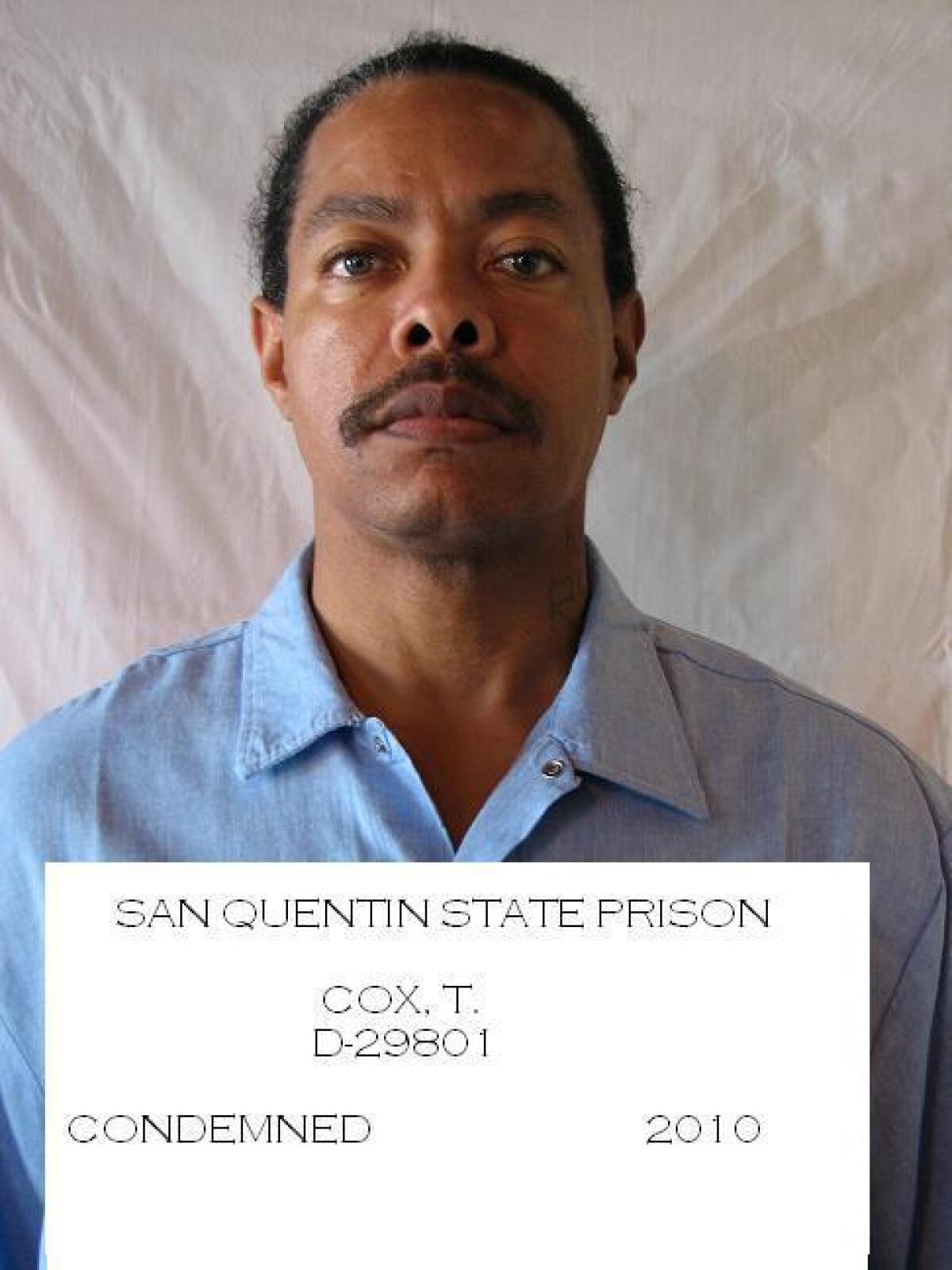
But former NFL star Kermit Alexander, one of the most prominent voices behind Proposition 66, argues that the state should uphold the laws already in place and send a message to brutal criminals. He is still waiting for the execution of Tiequon Cox, who killed his mother, sister and two nephews in South Central Los Angeles in 1984.
“I find it discouraging that the higher up we go, the worse the criminals go, there is always a way to forgive them for brutalizing us, and that is not wholesome,” he said.
Poll: California voters oppose ending the death penalty »
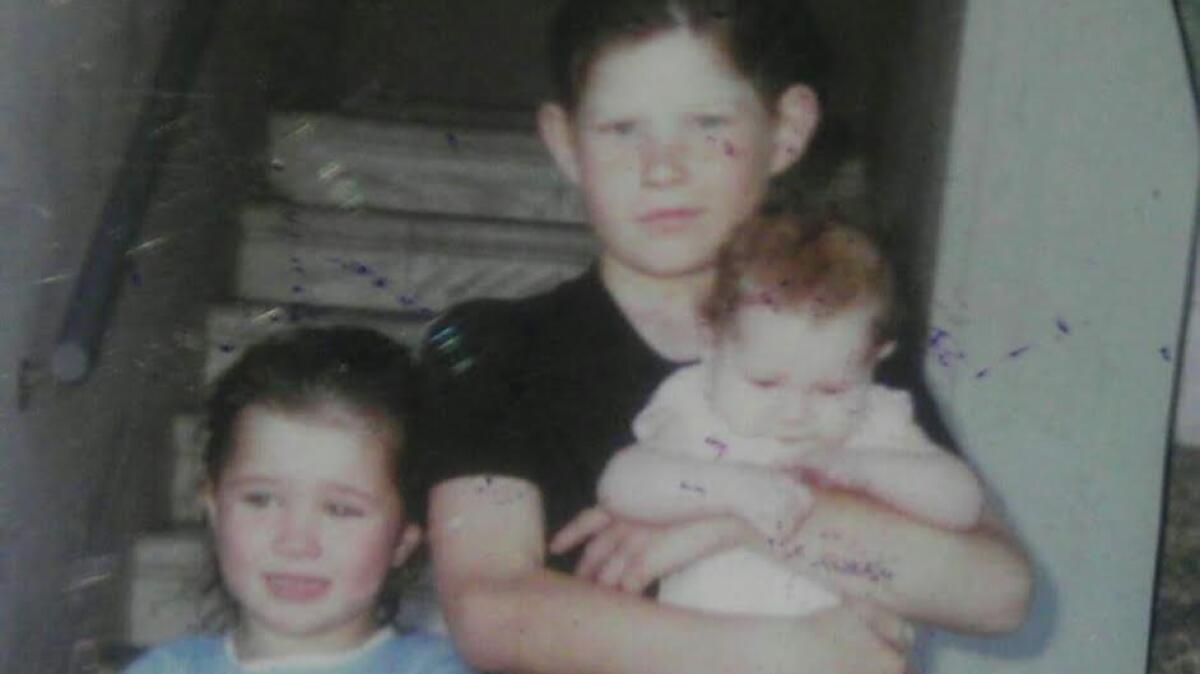
Friend’s daughter, Alithya McDonald, said the debate about the death penalty cannot be void of emotion or solely about economics when it affects so many families on a personal level. She argues that it is not the punishment that is the problem, it is how long she and others must wait to see it carried out.
McDonald was 5 when, wrapped in Michael’s Spider-Man blanket, she sat on the front steps of her family’s apartment waiting for her brother to come home. Each one of her family members died that day in their own way, she said.
In the years that followed, she often heard her parents cry at night. Her stepfather gave in to alcoholism. She was rarely, if ever, allowed to go out with her friends.
“I am 25 and still afraid of the dark,” she said.
Prosecutors told her Rhoades would be dead by the time she grew up, but he remains on death row at San Quentin. His face haunts her still.
“If I woke up tomorrow and Rhoades was no longer breathing on this earth, I would be happy,” she said.
Twitter: @jazmineulloa
ALSO:
California voters oppose ending state's death penalty
How 'MASH' actor Mike Farrell became a leading voice against the death penalty in California
Why Silicon Valley is pouring money into efforts to repeal California's death penalty
'No on Prop 66' campaign points to Texas case as warning against faster executions in California
Get the L.A. Times Politics newsletter
Deeply reported insights into legislation, politics and policy from Sacramento, Washington and beyond. In your inbox three times per week.
You may occasionally receive promotional content from the Los Angeles Times.








